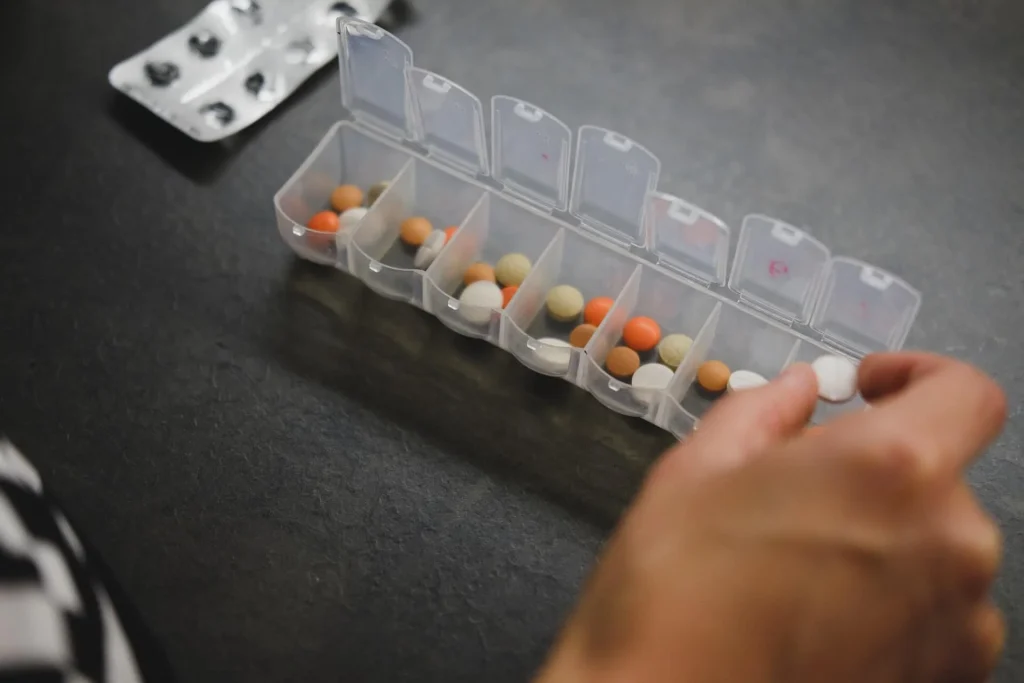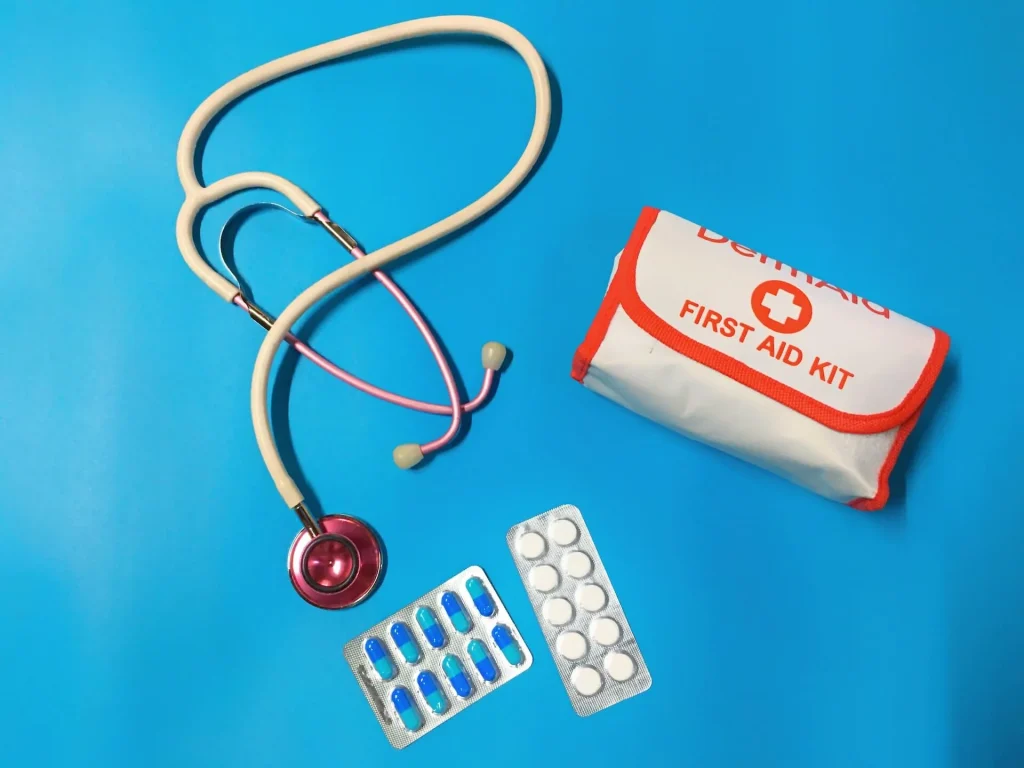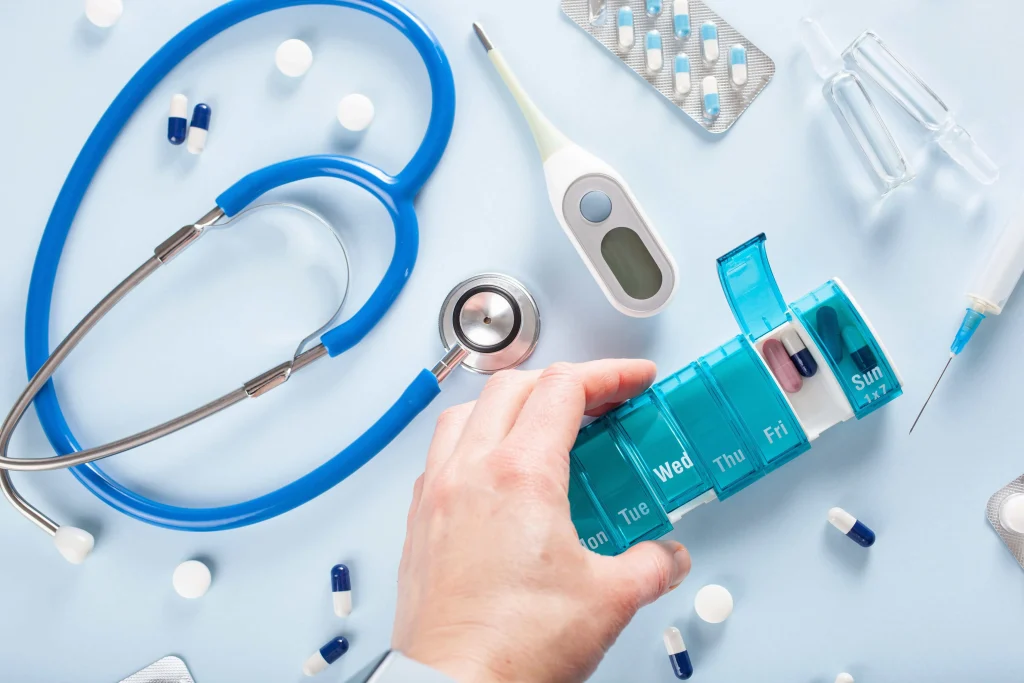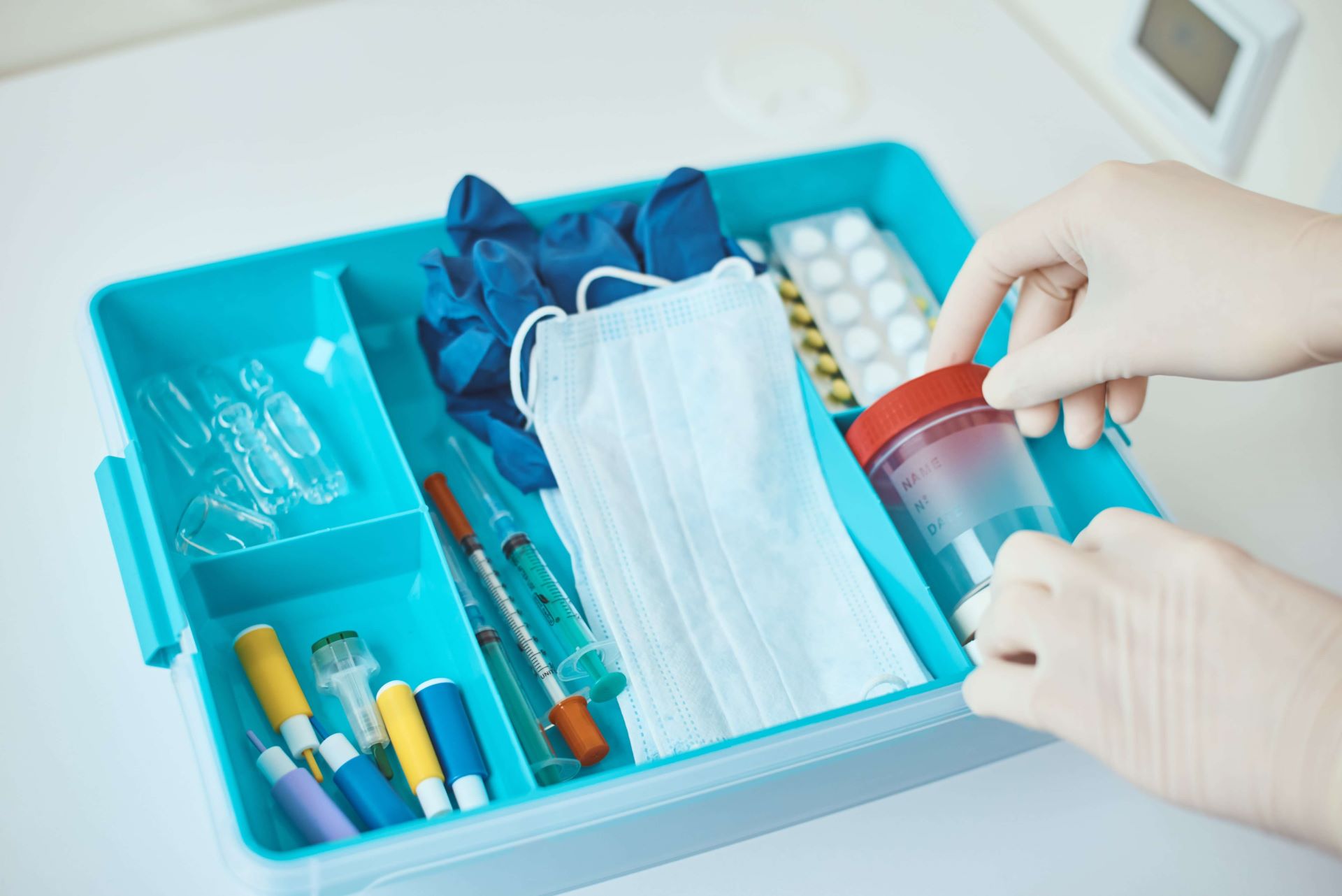Lately, there have been many calamities coming our way. And what exactly do you need? Of course! A medicine box! It is critical to have some essential self-care products and goods in your RFO house and lot. It is nowadays necessary to maintain a fully equipped medicine kit on hand.
If you’re searching for a rundown of medicine box basics, you’ve come to the correct spot! When the time demands it, having the proper drugs and emergency goods on hand may make a huge difference! Thus, this article will help you grasp the necessities of a well-stocked medicine box, whether you’re tidying your washroom, throwing out outdated medications, or letting your youngster off to depend on themselves. Do a raid of your medicine box and what’s presently on your shelves before you go to the drugstore. This is an excellent time to purge your medicine cabinet of outdated prescriptions and expired drugs.
Aside From Common Medications Like Cough Syrup, Pain Medication, and Pain Reliever, Here Are Some Essentials for Your Medicine Cabinet:

Medications and Ointments
Check the expiration dates on every first aid drug and discard any that have passed their expiration date.
- Cream with antibiotics – Cleaning a wound as quickly as possible after it occurs and putting antibiotic cream on it will considerably reduce your risks of infection.
- Aloe vera gel – This is particularly calming for sunburns and other types of burns. It has a natural anti-inflammatory component that soothes inflammation and swelling. The genuine plant is preferred since it is more cost-effective and genuine. To use, just cut the leaf into small pieces as needed.
- Calamine lotion – This skin cream relieves minor skin irritations caused by bug bites and poison ivy contact dermatitis.
- An ointment containing hydrocortisone – This substance is beneficial in the treatment of itchy skin, allergic reactions, and rash.
- Anti-diarrheal – If you’re experiencing the reverse situation, you’ll want treatment as soon as possible prior to becoming weak and dehydrated.
- Antacids – There are various types that assist in alleviating indigestion in pill and liquid forms.
- Cold and allergy medication for minor illnesses – Some are explicitly marked “non-drowsy,” which means they allow you to perform normally despite consuming them. Others will put you to sleep. Make certain you have both. Antihistamines are used to relieve hives, itching, and allergic responses caused by a variety of factors. Keep oral antihistamines (liquid or tablet form, which may be useful during a severe allergic response) and hydrocortisone lotion on hand.
- Analgesics are pain relievers – Ibuprofen (Advil, for instance) and acetaminophen are indeed the two most commonly used (Tylenol for example). Follow the directions attentively, both for dose as well as how soon you must consume them. Adults can also use aspirin to treat discomfort, however, it’s also useful to keep on hand in the event of a crisis. Taking aspirin during a heart attack is also beneficial, says the American Heart Association. In reality, persons suffering from cardiac arrest are frequently given aspirin by emergency health workers. Nevertheless, you must be aware of any aspirin intolerance in your household, and aspirin shouldn’t be administered to children under the age of 18.
First-aid materials

- A thermometer for the mouth – Electronic ones are significantly quicker and also more sturdy than glass ones but make absolutely sure the batteries are in good working order.
- Gauze and sticky tape – You’ll require further than a stick-on bandage for huge cuts or those that bleed or leak a lot. It’s a smart option to have a variety of gauze pad sizes on hand.
- Hand sanitizer and masks – You should keep them on hand in case someone in your home develops signs of disease, particularly COVID-19.
- Ace wrap – An Ace bandage is ideal for strengthening joints such as ankles, knees, and elbows in the event of a sprain or injury.
- Eyewash – If a relative gets oil or a strange item in their eye, you’ll prefer them to be prepared to rinse it out promptly.
- Bandages with adhesive – Get a range of sizes or purchase packs of varying sizes in order to treat anything from a minor cut or insect bite up to something bigger.
- Tweezers and shears – To cut the bandages and tapes, you’ll require scissors, and tweezers to remove splinters as well as other unwanted materials. Important reminder, Clean them using alcohol before using.
- Gloves that are disposable – If you are sensitive to latex, ensure sure they are latex-free. Ensure to refresh your inventory because it’s enticing to utilize them for different things.
Extra items you might need
- Prescriptions – Check that your medicines are not outdated and are replenished on schedule. If you can’t recall what a drug is really for, consult your doctor.
- Bags of ice – You should keep them in the fridge. Keeping one on standby when you pull a muscle or get a sunburn will provide a lot of comfort.
- Contact numbers for emergencies – Place them on your smartphone and near your house phone, if you possess one.
- Medicines for certain condition – If you suffer from severe allergies, have injectable epinephrine on hand. Keeping a spare inhaler on hand might be a lifeline for those who suffer from asthma.
What’s the Importance of Keeping a Medicine Box at Home?

- Rapid reaction – Keeping a medicine box on hand in your RFO house and lot can effectively deter an accident from worsening and might just save your visit to a walk-in clinic or hospital. This is particularly important if the injury results in hemorrhage. You can provide interim help to someone who is injured, but based on the severity, you may be required to summon emergency services.
- Provide Assistance to a Kid or Acquaintance – When nothing else persuades you, consider that those around you could not be as well equipped as you are. If somebody in your vicinity suffers from any of the injuries your medicine box may come in helpful. Children and the elderly are the most vulnerable to injury and mishaps.
Always Remember
Every medicine has a shelf life. If you’re going through your medication cupboard in your RFO house and lot and come upon a container of antibiotics that was purchased several years ago, It is advised that you should always dispose of it. To discard the drug, combine it with an undesirable object, such as dirt, coffee grounds, or kitty litter, and drop it in a sealed plastic container in the garbage. Pills should not be crushed.
It is also worth noting that if severe symptoms occur the counter drugs might be not needed and the patient must be brought to a medical professional immediately.
Related Blog: Getting Yourself Prepared for Sudden Thunderstorms and He


